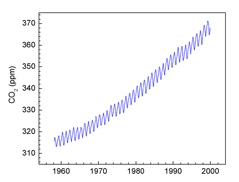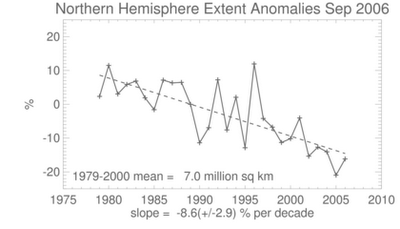Priorities
Bird flu is creating quite a stir at the moment, and rightly so - a pandemic would be disastrous and we should do all we can to prevent an outbreak. It is amazing to see what can be done on such a large scale, in such a short time to combat a problem once it is deemed threatening enough. The EU has banned imports of all wild birds, as well as farmed birds from Turkey and Greece, and EU nations are spending millions of Euros on the alleged miracle cure, Tamiflu, in an attempt to control the disease should it infect humans. The Americans have set aside $3.9bn in “bird flu funds”, mainly for antiviral drugs and vaccines. Curiously, although perhaps predictably, George Bush says that he has considered using the military to maintain control should the strain appear – cue images of GI’s gunning down poultry and guided missiles taking out chicken farms. Perhaps most impressive though, is the Chinese government’s decision to vaccinate 14 billion birds. This is a lot of birds.
And it isn’t just governments getting in on the act. Auckland University has recently developed a pandemic plan , including briefings to the senate and senior management, a dedicated “response team” and adopting the four-level WHO pandemic management system.
So the message is clear. Bird flu is a big problem and we are doing almost everything we can to prevent it, including spending lots of money on preventative measures and research.
It is interesting to contrast this with the global response to climate change and the threat of global warming. Whilst bird flu is a serious problem that we certainly need to address, global warming is surely a much greater threat to the future of humanity and yet it has initiated less response. Although there is plenty of discourse about global warming, there has been relatively little action. China is willing to vaccinate 14 billion birds but has done virtually nothing to reduce emissions – currently, China is on track to double the world’s anthropogenic carbon emissions. George Bush sees obtaining oil and eliminating dangerous chickens as good reasons to deploy the US military but has shown no interest in curbing US carbon emissions. Only the EU comes close to giving climate change the same sort of priority as bird flu.
So why have birds with colds got most of us more worried than melting glaciers? I suspect it has to do with the immediacy of the threat and that, stories and images of dead chickens (or people) make good news and a fairly convincing, easy-to-follow argument – if you get bird flu you could die, and this is bad. The evidence for anthropogenic climate change is just as compelling but far less direct. So this might explain why people aren’t as worried about climate change, but why the lack of action? This is probably to do with the commons dilemma. It makes economic sense to spend money eliminating a disease from your chickens if you want people to buy them in the future. It is more difficult to justify spending a lot of money on cleaner energy sources and higher emissions standards. The climate is a shared resource and it is in a nation’s best interests in the short term to burn fossil fuels as a cheap energy source and to exploit the climate as a dump-site for carbon emissions, even if, in the long term, we all suffer.
Nonetheless, I think the assault on bird flu should give us hope. The Kyoto Protocol is a good first step towards managing the climate as a global commons and if the Chinese government can all of a sudden decide to do something as drastic as vaccinating 14 billion birds, perhaps getting them to fit a few million catalytic converters and start building zero emission vehicles isn’t unrealistic. We just need to convince the right people, and perhaps do what New Zealand has always done, and lead by example.
And it isn’t just governments getting in on the act. Auckland University has recently developed a pandemic plan , including briefings to the senate and senior management, a dedicated “response team” and adopting the four-level WHO pandemic management system.
So the message is clear. Bird flu is a big problem and we are doing almost everything we can to prevent it, including spending lots of money on preventative measures and research.
It is interesting to contrast this with the global response to climate change and the threat of global warming. Whilst bird flu is a serious problem that we certainly need to address, global warming is surely a much greater threat to the future of humanity and yet it has initiated less response. Although there is plenty of discourse about global warming, there has been relatively little action. China is willing to vaccinate 14 billion birds but has done virtually nothing to reduce emissions – currently, China is on track to double the world’s anthropogenic carbon emissions. George Bush sees obtaining oil and eliminating dangerous chickens as good reasons to deploy the US military but has shown no interest in curbing US carbon emissions. Only the EU comes close to giving climate change the same sort of priority as bird flu.
So why have birds with colds got most of us more worried than melting glaciers? I suspect it has to do with the immediacy of the threat and that, stories and images of dead chickens (or people) make good news and a fairly convincing, easy-to-follow argument – if you get bird flu you could die, and this is bad. The evidence for anthropogenic climate change is just as compelling but far less direct. So this might explain why people aren’t as worried about climate change, but why the lack of action? This is probably to do with the commons dilemma. It makes economic sense to spend money eliminating a disease from your chickens if you want people to buy them in the future. It is more difficult to justify spending a lot of money on cleaner energy sources and higher emissions standards. The climate is a shared resource and it is in a nation’s best interests in the short term to burn fossil fuels as a cheap energy source and to exploit the climate as a dump-site for carbon emissions, even if, in the long term, we all suffer.
Nonetheless, I think the assault on bird flu should give us hope. The Kyoto Protocol is a good first step towards managing the climate as a global commons and if the Chinese government can all of a sudden decide to do something as drastic as vaccinating 14 billion birds, perhaps getting them to fit a few million catalytic converters and start building zero emission vehicles isn’t unrealistic. We just need to convince the right people, and perhaps do what New Zealand has always done, and lead by example.



2 Comments:
At 1:55 PM, Steve said…
Steve said…
I don't think bird flu is a problem at all - given less than a 100 people world wide have died of bird flu I'm not sure what the fuss is all about. Thousands (hundreds of thousands probably) die every day of aids, malaria, car crash, etc etc. You've got more chance of chocking on a bacon sandwich than catching bird flu.
Everyone is worried about the possibilty of bird flu - I find the frenzy bizzare and irrational. I've written about it in my blog - the article (Bird Flu and the Second Coming of Jesus Christ) was syndicated by hundreds of web sites and published on scoop. It's kinda sarcastic. Ya gotta laugh.
At 2:06 PM, Alexei said…
Alexei said…
Yeah, bird flu has much more coverage then it needs. We had a professor from Otago come up and give a seminar at the University of AUckland on it last week. The lecture theatre was packed to the gunnels. It makes me sick that we spend so much time on these things when much larger problems loom on the horizon.
The H5N1 virus may or may not cause a pandemic, but in the scheme of things there are much greater causes of concern in the world. More than 25,000 people dying from poverty-related illness(!!) and other preventable causes in the third world every day of every month of every year.
Post a Comment
<< Home